How many of these Crystal Clear Succulents do you know about? Here’s all the info on these beautiful pieces of art.
Few plants in the world tease the sun’s rays as brilliantly as these translucent living gems. Crystal-clear succulents absorb sunlight efficiently and deeply through their “windows”—special, see-through photosynthetic tissues on their leaves.
This not only protects the plant from sunburn and overheating but also enables it to utilize light optimally and conserve water.
As light passes through their clear leaves, they glisten like plump dew drops in the morning sun, giving your succulent collection a luminous makeover while being remarkably easy to care for. These are our top picks of 8 crystal-clear succulents for your home!
Crystal Clear Succulents
1. Cooper’s Haworthia

Botanical Name: Haworthia cooperi
If you get your hands on this succulent, consider yourself lucky, as this variety is rare and a collector’s favorite.
The Cooper’s Haworthia has almost completely transparent, sporting pebble-like fleshy oval leaves with fine veins. The leaves are in the form of small rosettes, creating tight clumps.
2. Cathedral Window Haworthia
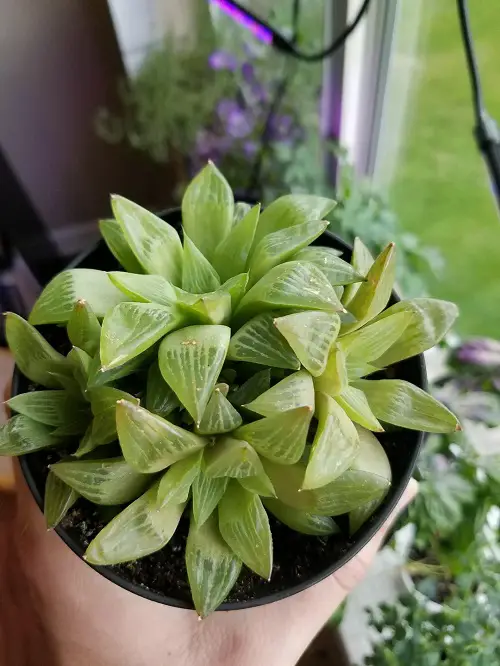
Botanical Name: Haworthia cymbiformis
Place a Cathedral Window Haworthia by a sunlit spot, and you’ll find its glassy tips sparkle, outlining its form like a “window,” hence the name.
Appearing in dense rosettes, the transparency of its conical leaves allows it to efficiently conduct photosynthesis in different light conditions.
3. Mini Aloe Plant
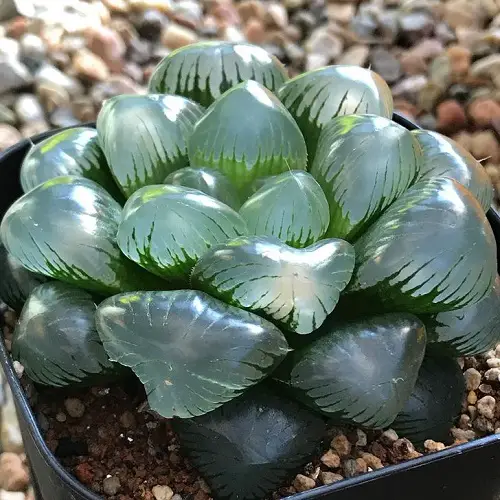
Botanical Name: Haworthia obtusa
The mini aloe plant may be small, but it has quite a luscious look! It has bubble-like rounded, smooth translucent leaves and bright green veins that look like plump little water balloons!
The small size and high water concentration help them adapt well to sweltering heat.
4. String of Pearls
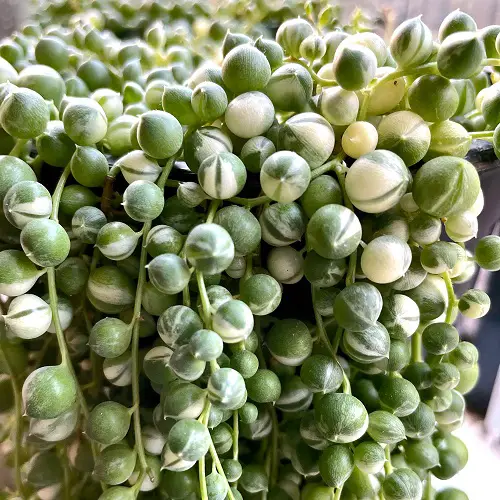
Botanical Name: Senecio rowleyanus
With unusual bead-like leaves, the string of pearls naturally possesses epidermal windows: translucent areas on its round leaves that enable light to penetrate easily and reach its photosynthetic tissues.
Sometimes, with overwatering, the pearls can turn squishy and transparent. It is important to differentiate between the good and bad kind of see-through with these cascading succulents. Did you know these plants also flower? Here’s how.
5. Alworthia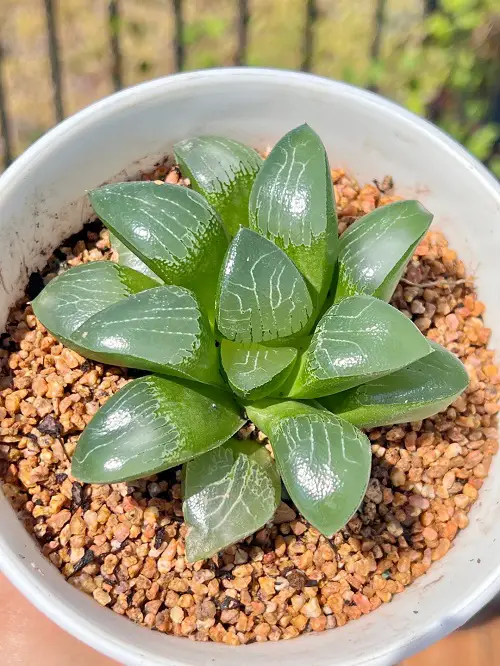
Botanical Name: Aloe x Haworthia
Combine Aloe with Haworthia, and you will get Alworthia! Why? This succulent is really a cross between the two. This hybrid displays a plump, glassy rosette of leaves like Haworthia, with the resilience and medicinal qualities of Aloe.
Thanks to their rich parentage, alworthias are super easy to maintain and drought-tolerant like all succulents.
6. Baby Toes
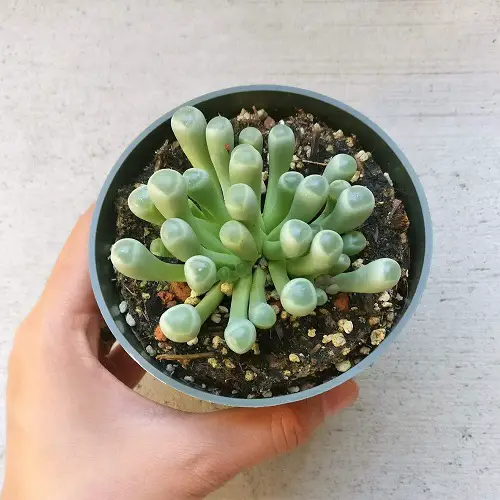
Botanical Name: Fenestraria rhopalophylla
With thick cylindrical leaves emerging as clusters of tiny toes from a fused base, the tips of these metaphorical toes have top tips or “windows” through which light passes and enables photosynthesis. The chlorophyll-containing cells are actually at the bottom of its leaves.
And with their glassy tops, baby toes can survive even when covered in sand, as long as the tips are above the surface, making them perfect desert plants.
7. Fairy Elephant’s Feet

Botanical Name: Frithia pulchra
This cute succulent from the arid parts of South Africa features paired clusters of plump, bluish-green leaves that are flattened at the top, resembling tiny elephant feet.
The flat translucent tips or windows are called fenestrations, allowing light to pass directly to the plant’s inner tissues for photosynthesis–just like the ones on Baby Toes.
8. Haworthia Atrofusca
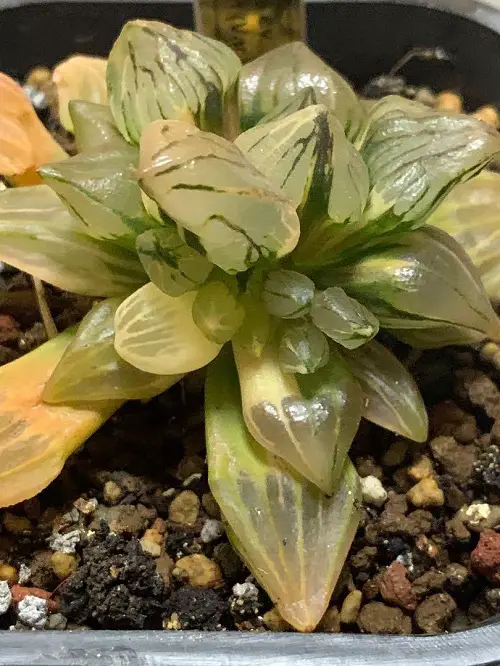
Botanical Name: Haworthia magnifica v. atrofusca
Now, we come to the end of our list of crystal-clear succulents! This mutant form of haworthia atrofusca gives off watermelon vibes! With similar markings, fleshy bulging leaves, and coloration, the tips of its conical leaves are quite translucent and very alien-like.
The best way to visually feast on this fruit-like succulent is to place it on a windowsill and allow the sunlight to ripple through it!


